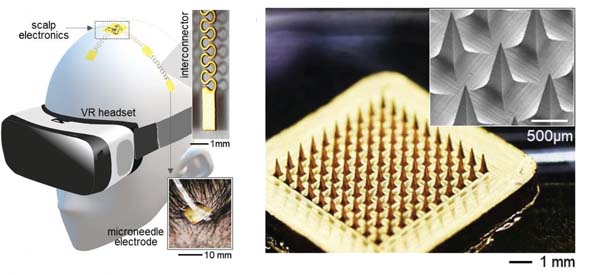Imagine that your brain could no longer talk to your body. How would you move? How would you move? Researchers are working on a wearable solution to the problem.
When your brain cannot talk to your body, it’s a problem. For paralyzed patients, they cannot control their muscles. For patients who have lost a hand, they cannot make a robotic prosthetic do their bidding. Fortunately, researchers are working on brain-machine interface technology that can reconnect the brain impulses to muscles or powered prosthetics. Most of these require lots of wires and complex equipment that are difficult to set up and maintain. A team at Georgia Tech have come up with a wearable, wireless system. A small chip with a matrix of 100 tiny electrodes detect brain activity without any messy gels. The chip is incorporated into the straps of a virtual reality headset, which is used to help speed the training of artificial algorithms to recognize different brain signal patterns. Four test subjects have already trained the system to perform functions such as grasping with a hand. This could be a huge help for a wide range of physically impaired patients.


